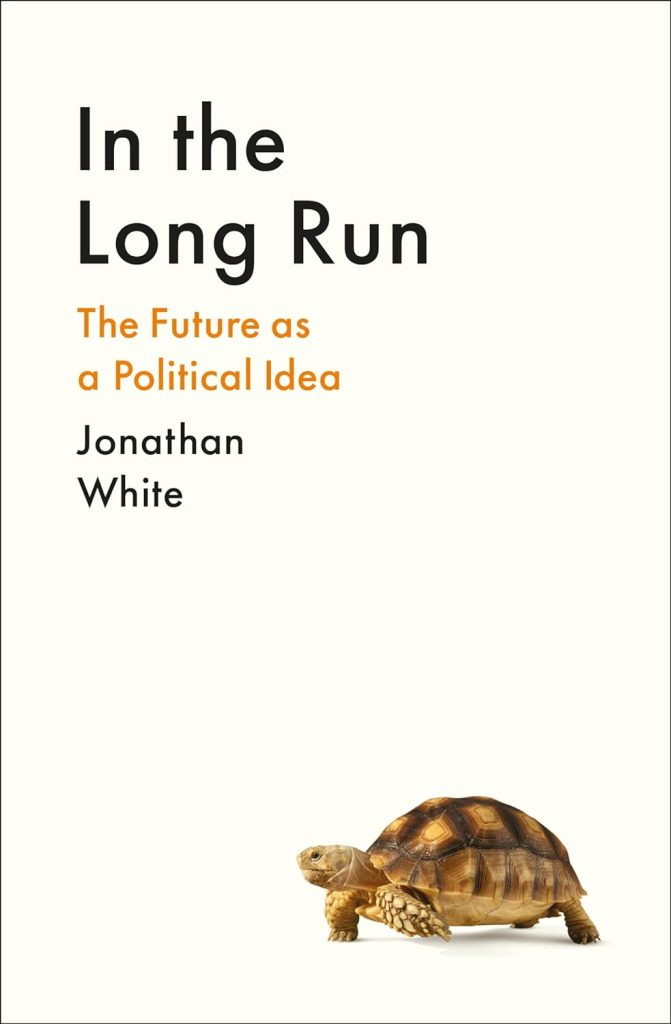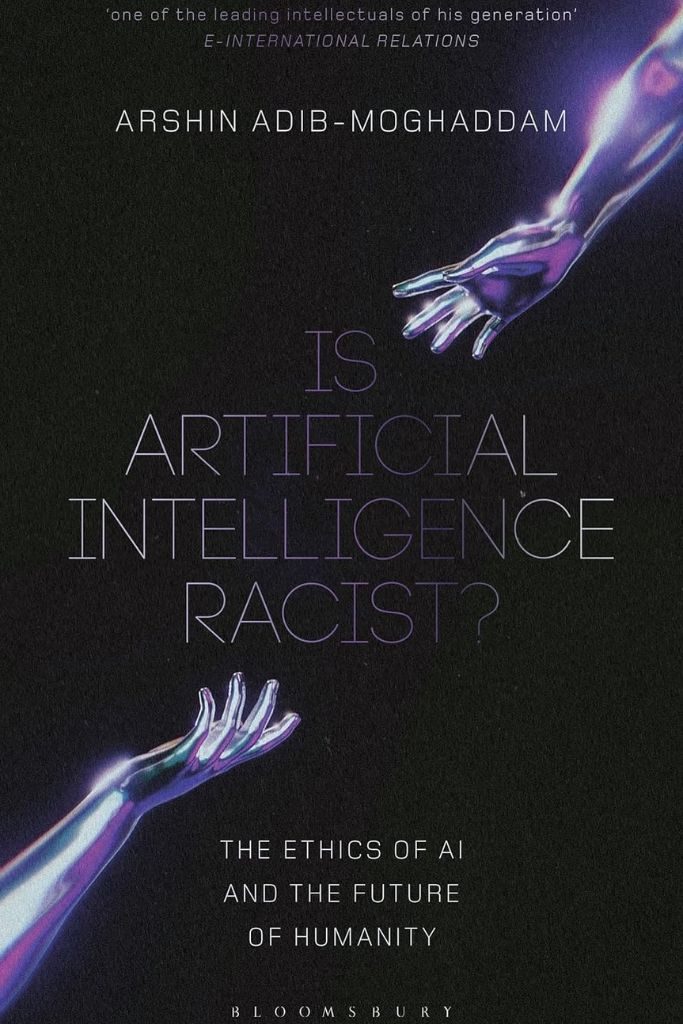Future
The End of the Future of Humanity Institute (updated)
The Future of Humanity Institute (FHI) at the University of Oxford closed earlier this week.

The FHI was an interdisciplinary research group founded in 2005 by philosopher Nick Bostrom, who served as its director for its entire existence. He will now be leaving Oxford.
The closure of the FHI appears to be the result of decisions by Oxford’s Faculty of Philosophy. A statement on the FHI website says:
Over time FHI faced increasing administrative headwinds within the Faculty of Philosophy (the Institute’s organizational home).
A “final report” on the FHI by Anders Sandberg provides a little more detail:
While FHI had achieved significant academic and policy impact, the final years were affected by a gradual suffocation by Faculty bureaucracy. The flexible, fast-moving approach of the institute did not function well with the rigid rules and slow decision-making of the surrounding organization. (One of our administrators developed a joke measurement unit, “the Oxford”. 1 Oxford is the amount of work it takes to read and write 308 emails. This is the actual administrative effort it took for FHI to have a small grant disbursed into its account within the Philosophy Faculty so that we could start using it—after both the funder and the University had already approved the grant.)
Starting in 2020, the Faculty imposed a freeze on fundraising and hiring. Unfortunately, this led to the eventual loss of lead researchers and especially the promising and diverse cohort of junior researchers, who have gone on to great things in the years since. While building an impressive alumni network and ecosystem of new nonprofits, these departures severely reduced the Institute. In late 2023, the Faculty of Philosophy announced that the contracts of the remaining FHI staff would not be renewed. On 16 April 2024, the Institute was closed down.
The reasons the Faculty of Philosophy told the FHI to stop hiring and fundraising have not been made public. It’s not clear whether it is related to personnel or administrative issues, shifts in funding priorities, dissatisfaction with the research focus of the FHI, or something else altogether. (Please avoid speculation about this in the comments.)
The website statement summarizes that research focus:
FHI was involved in the germination of a wide range of ideas including existential risk, effective altruism, longtermism, AI alignment, AI governance, global catastrophic risk, grand futures, information hazards, the unilateralist’s curse, and moral uncertainty. It also did significant work on anthropics, human enhancement ethics, systemic risk modeling, forecasting and prediction markets, the search for extraterrestrial intelligence, and on the attributes and strategic implications of key future technologies. One major contribution was in showing that it was even possible to do rigorous research on big picture questions about humanity’s future.
The report goes into greater detail on this research and its impact, as well as the various academic and public-facing activities of scholars at the FHI. You can read it here.
UPDATE (4/18/24): An inquiry to parties at the University of Oxford outside the FHI yielded the following statement:
Oxford University has taken the difficult decision to close the Future of Humanity Institute, a research centre in the Faculty of Philosophy. The Institute has made an important contribution to the study of the future of humanity, for which we would like to thank and recognise the research team. Researchers elsewhere across Oxford University are likely to continue to work on this emerging field.
While this confirms some facts, it doesn’t do much to explain the reasons for the closure. Some insight into those reasons, perhaps, can be gleaned from a section towards the end of FHI’s report:
Any organization embedded in a larger organization or community needs to invest to a certain degree in establishing the right kind of social relationships to maintain this embeddedness. Incentives must be aligned, and both parties must also recognize this alignment. We did not invest enough in university politics and sociality to form a long-term stable relationship with our faculty. There also needs to be an understanding of how to communicate across organizational communities. When epistemic and communicative practices diverge too much, misunderstandings proliferate. Several times we made serious missteps in our communications with other parts of the university because we misunderstood how the message would be received. Finding friendly local translators and bridgebuilders is important.
Another important lesson (which is well known in business and management everywhere outside academia) is that as an organization scales up it needs to organize itself differently. The early informal structure cannot be maintained beyond a certain size, and must be gradually replaced with an internal structure. Doing this gracefully, without causing administrative sclerosis or lack of delegation, is tricky and in my opinion we somewhat failed.
The post The End of the Future of Humanity Institute (updated) first appeared on Daily Nous.
Gaza Asks Us A Question About What Kind Of Future We Want To Have

Listen to a reading of this article (reading by Tim Foley):
https://medium.com/media/c117f06a0e72713465ff84c581c3509c/href
The main reason I’ve focused so hard on Gaza these last six months isn’t so much because of how evil and horrific Israel’s mass atrocity is in and of itself, but because it’s so intimately intertwined with all our world’s other problems, and with the future of the human species.
In a very real way, the destruction of Gaza appears to be a moment in history where humanity is collectively mulling over whether it wants to keep behaving in a crazy, self-destructive way and continue along its trajectory into dystopia and toward self-inflicted extinction, or abandon this madness and push for something better. Whether it wants to keep buying into the lies and propaganda and tacitly consenting to the psychopathic murderousness of the powerful, or let the light of truth shine in.
A live-streamed genocide happening right out in the open forces a civilization to start asking questions about itself. If something like this can happen in plain view of everyone, and the people in charge not only do nothing but actively facilitate it, then you have to start wondering if everything about your entire nation is deranged, and if everything you’ve been told about the world is a lie.
If something so nakedly evil — undisguised by anything besides a thin veneer of Zionist gaslighting telling us we’re not seeing what we’re seeing — can be allowed to stand by those we’ve entrusted to run things, then it means our entire society is diseased. Our government. Our political systems. Our media. Our education systems. Our worldviews. Our culture. It’s all rotted and corrupted, right down to the core.
The future we are being shown through the window of Gaza is dark. Dark, dark, dark, dark. They’re currently using artificial intelligence to create kill lists and to determine when its targets will be at home with their families to ensure maximum civilian deaths. We used to worry about a dark future where humans send machines to go kill people indiscriminately, but it turns out it’s actually happening the other way around — we’re programming machines to tell us who to kill. The horror in our present dystopia isn’t so much autonomous murderbots as ethical decisions about killing being outsourced to AI.
We’re being asked to accept this and move forward in this direction into the future. We’re being asked to walk into the future holding the assumption that it’s fine and normal for our governments to knowingly support an unforgivable act of mass slaughter upon the inhabitants of a giant concentration camp. We’re being asked to walk into the future holding the assumption that it’s fine and normal for the mass media to lie and distort and misinform the public about a matter of such urgent importance day after day, month after month. We’re being asked to walk into the future holding the assumption that it’s fine and normal for a blatant genocide to take place right in front of our faces, and then move on as though nothing happened.
And right now we’re collectively ruminating on the question of whether we’re going to decide to do those things, or if we’re going to decide to do something else instead.
The Gaza genocide is such a massive thing in and of itself — the injustice, the murder, the loss, the unfathomable suffering. But what’s happening in Gaza is also about so much more than Gaza. It’s a moment in history where humanity is thinking seriously about real revolutionary change, and weighing the options between that and continuing along this tired old blood-soaked path we’ve been travelling on for millennia.
Gaza proves that our entire civilization is cancerous, and that everything we’ve been doing has failed. When you come across information which blows apart your worldview in your personal life, you can either collapse under the weight of cognitive dissonance until you find some way to plug yourself back into the comforting lies, or you can set about the hard work of forming a new way of looking at things. That’s the sort of moment we’re being collectively offered with Gaza. We’ll either accept the invitation, or continue our slide into darkness.
_______________
My work is entirely reader-supported, so if you enjoyed this piece here are some options where you can toss some money into my tip jar if you want to. Go here to find video versions of my articles. Go here to buy paperback editions of my writings from month to month. All my work is free to bootleg and use in any way, shape or form; republish it, translate it, use it on merchandise; whatever you want. The best way to make sure you see the stuff I publish is to subscribe to the mailing list on Substack, which will get you an email notification for everything I publish. All works co-authored with my husband Tim Foley.

Bitcoin donations: 1Ac7PCQXoQoLA9Sh8fhAgiU3PHA2EX5Zm2
Featured image via Adobe Stock.
Fresh audio product: chaos in Haiti, death of the future
Just added to my radio archive (click on date for link):
March 14, 2024 Robert Fatton explains Haiti’s further descent into poverty and chaos • Steve Fraser, author of this article, analyzes and mourns the death of any sense of a better future
Crocodile Tears For Gaza While Backing Its Destruction

Notes From The Edge Of The Narrative Matrix
Listen to a reading of this article (reading by Tim Foley):
https://medium.com/media/80ed67438d45d548011c6c2441004b7f/href
❖
It says so much about US politics that Biden’s most vulnerable political weak point is the fact that he’s sponsoring a genocide, but Republicans can’t attack him on that point because they support the genocide too.
❖
It’s amazing how fast the bill to ban TikTok is being shoved through by US lawmakers. This would easily be the single most significant act of direct government censorship in US history.
❖
Nothing’s more enraging than seeing the western officials who are making this genocide possible weep crocodile tears about how “heartbreaking” it is. You’re fucking doing it to them you shitstains! It’s like beating someone to death while sobbing about how tragic their untimely death will be.
❖
Israel’s atrocities in Gaza are quantifiably much, much, much worse than October 7. We’re begging the western press to give as much weight to the suffering inflicted upon Palestinians by the Gaza genocide as the suffering inflicted on Israelis by October 7, when in reality it deserves much, much more weight.
❖
We’re about two weeks out from seeing mass media reports like “Biden administration to begin airdropping child-sized coffins into Gaza to aid Palestinians in their unfortunate time of need.”
❖
https://medium.com/media/2e0e3fadcb95b13ddabb6ed20609f971/href
❖
Democrats: We stand for justice and equality and we oppose racism and oppression!
Palestinian: Oh so you oppose the genocide in Gaza then?
Democrats: Oh god no. No we meant, like, we want more Latinx landlords.
❖
Saying it’s racist and evil to criticize Zionists is like saying it’s racist and evil to criticize conservatives. It’s a fucking political ideology.
❖
The thing is we don’t know how to do this. We don’t know how to keep eight billion homo sapiens alive without destroying the ecosystem. We don’t know how eight billion humans can share the earth without wiping each other out via the armageddon weapons they invented. Without hurting, exploiting, oppressing and enslaving each other.
We’ve got some ideas about how this could be done, but we’ve never actually done it. In the extremely short amount of time this planet has had billions of humans on it, we’ve never come anywhere remotely close to figuring out how to avoid cataclysmic disaster and nightmarish dystopia. We’re still very much on that trajectory, and because of the competition-based systems we have in place, nothing is happening to steer us away.
So we are all — every single one of us — right now doing something that we don’t know how to do. We are living on this planet, but we don’t actually know how to. We are one of eight billion humans who don’t know how to sustain a world of eight billion humans. We’re in the water, but we don’t know how to swim.
And we could all probably use a little bit of humility about this. Everywhere we look we see pundits, politicians and thought leaders talking about what changes need to be made to our society and our world in confident-sounding voices, but none of them actually know. The very best of them have some educated guesses as to how we might start making the necessary changes to avoid various disasters, but since we haven’t even started making any real changes, they don’t actually know. We’re a bunch of lost little kids who can’t find their parents.
Obviously we need to learn how to swim, because these are the waters we were birthed into. I mean only to say here that our collective efforts to learn how to swim would probably be aided by a lot more curiosity about how swimming might actually occur and what it would actually look like, and a lot less confident-sounding bloviation from people who’ve never swam an inch in their lives.
A humble curiosity about this entirely unprecedented situation we’ve found ourselves in would probably serve our species well.
________________
My work is entirely reader-supported, so if you enjoyed this piece here are some options where you can toss some money into my tip jar if you want to. Go here to buy paperback editions of my writings from month to month. All my work is free to bootleg and use in any way, shape or form; republish it, translate it, use it on merchandise; whatever you want. The best way to make sure you see the stuff I publish is to subscribe to the mailing list on Substack, which will get you an email notification for everything I publish. All works co-authored with my husband Tim Foley.

Bitcoin donations: 1Ac7PCQXoQoLA9Sh8fhAgiU3PHA2EX5Zm2
In the Long Run: The Future as a Political Idea – review
Jonathan White‘s In the Long Run: The Future as a Political Idea examines how changing political conceptions of the future have impacted democracy, arguing that contemporary challenges like economic slowdown and climate change have led to reactive politics and short-termism. Though the book proposes ways to revitalise democracy, Aveek Bhattacharya suggests we may need to seek beyond our political institutions for strategies to build a more open future.
You can read an interview with Jonathan White about the book here. On Monday 11 March at 6.30pm White will speak at an LSE panel event, The politics of the future – find details and register here.
In the Long Run: The Future as a Political Idea. Jonathan White. Profile Books. 2024.
 In the Long Run: The Future as a Political Idea is a book about the history of the future, and what it means for the present. More precisely, it describes how the way people think about the future has evolved over time, and the impact of these changes on democracy. Jonathan White’s central argument is that while optimism for the future once helped build democracy, economic slowdown, climate change, new technology and geopolitical tension mean that “the future no longer seems its [democracy’s] friend”.
In the Long Run: The Future as a Political Idea is a book about the history of the future, and what it means for the present. More precisely, it describes how the way people think about the future has evolved over time, and the impact of these changes on democracy. Jonathan White’s central argument is that while optimism for the future once helped build democracy, economic slowdown, climate change, new technology and geopolitical tension mean that “the future no longer seems its [democracy’s] friend”.
For democracy to function, White observes, it is critical that people believe an “open future” is possible: that there are alternatives to the status quo, that society can evolve in a range of different ways, and that the people can choose between them. One of the key defining characteristics of democracy – the peaceful handover of power – is premised on changeability of the future: election losers believe that they will get their chance to achieve their vision of society again.
For democracy to function, White observes, it is critical that people believe an ‘open future’ is possible
In the present, White says, it is harder to maintain that patience and faith. The future is regarded with fear and claustrophobia. At various points he describes the future, far from being open, as “closing in”. Catastrophe – societal decay, conflict, environmental collapse – feels hard to avert. Insofar as there are options, they involve deferring to technocrats. There is a “now or never” urgency about politics, and a fear that waiting your turn means leaving it too late because the other side will destroy everything.
Via a tour of historical political thinkers, White sketches the ideas of the future that make for the most vibrant democratic system. Political and social outcomes must seem open, but not in such a destabilising manner as to trigger counter-revolution from those attached to the present. A strand of utopianism can be energising but must be linked to near-term political tactics to be practicable. Efforts to limit uncertainty, to render the future predictable, through calculation and technocracy risk squeezing out the necessary imagination and mass participation of vibrant democracy. At the same time, chaotic impulsiveness and pure disregard for expertise risks descending into fascism. Trying to control the future by keeping it secret is likely to generate conspiracy theories and discontent. Consumerism individualises the future and means we no longer share in it – we move from valorising Victorian steam trains to wanting our own personal cars.
Our perpetual state of emergency, while creating unpredictability, produces reactive politics, designed mainly to return things to the way they were.
The conception of the future we have arrived at today is not, in White’s opinion, sufficiently conducive to democracy. Our perpetual state of emergency, while creating unpredictability, produces reactive politics, designed mainly to return things to the way they were. Short-termism dominates – most notably, through the election cycle, but even longer-term threats like climate change are tractable only by converting them to benchmarks and deadlines. Managerialism and secrecy dominate, empowering organisations like the European Central Bank and the International Monetary Fund and triggering impulsive populist backlashes.
White’s proposals for rebuilding a more positive conception of the future and revitalising democracy are somewhat surprising. He is sceptical of direct democracy – while more referendums might give ordinary citizens more chance to shape the future, they raise the stakes and perpetuate the “all-or-nothing” politics he thinks is so baleful. Small-scale councils are too small-scale to create significant change, citizens’ assemblies too short-lived to pursue a persistent vision.
White calls for ‘radical representative democracy’, with mass participation in the development of party policy and party members having greater opportunity to recall politicians who fail to deliver on those agreed goals.
Instead, he puts his chips on political parties as the crucibles of a more inclusive, compelling and hopeful vision of the future. He calls for “radical representative democracy”, with mass participation in the development of party policy and party members having greater opportunity to recall politicians who fail to deliver on those agreed goals. It’s an argument with echoes of Peter Mair’s Ruling the Void, which also claimed that the disengagement of ordinary members and politicians from their political parties had led to “the hollowing of Western democracy”.
White’s rebooted party system sounds good in theory, but invites scepticism about its practicality. His central assumption is that citizens’ disempowerment is the root cause of our current democratic malaise, and that the opportunity for greater influence will suffice to tempt enough people to give up their evenings and weekends to political causes. It is not encouraging that the existing parties that have done most to engage with mass movements and improve participation with things like online platforms – Podemos in Spain and the Five Star Movement in Italy – do not seem to have restored democratic confidence in their countries.
The Victorian capitalists who built the factories and railroads may not have been personally attractive, but they inspired progressives and socialists to dream about how their innovations could be used to benefit all.
White is oddly dismissive of the pockets of optimism that do exist outside the political system – most notably Silicon Valley, where ideas like “Effective accelerationism”, the view that technological progress is likely to obviate many of our deepest societal challenges, has taken root. For White, they display the wrong sort of optimism: too consumerist and individualistic, too inclined towards anti-system chaotic thinking, tendencies encapsulated in the figure of Elon Musk, presented as fascistoid, if not fascist. Setting aside whether that is a fair characterisation of Musk, the question it raises is why the confidence of tech companies seems so divorced from the sentiments of wider society. The Victorian capitalists who built the factories and railroads may not have been personally attractive, but they inspired progressives and socialists to dream about how their innovations could be used to benefit all. There are some – figures like Aaron Bastani on the far left and Derek Thompson on the centre left – that are trying to do something similar today, but White does not recognise them as such.
White assumes that the problems of democracy are endogenous: that they are caused by political institutions and must be resolved by them.
Most fundamentally, White assumes that the problems of democracy are endogenous: that they are caused by political institutions and must be resolved by them. But there are more straightforward explanations for the modern morosity. Stagnant economic growth, and the failure of new technologies to demonstrably improve living standards, would naturally be expected to undermine confidence that things will improve. The demographic shift to an older population in rich countries may also have contributed to a lack of vitality and enthusiasm, and a tendency to look back with nostalgia rather than forward with hope. Even among the young, we should not necessarily take perceptions at face value. Phenomena like “climate anxiety” seem to reflect anxiety at least as much as they reflect the climate, and as such will often be psychological, not just political in nature.
That’s not necessarily a comforting thought. Maybe technological abundance is around the corner, maybe the economy will turn around, maybe the mental health crisis will abate – whether by sheer luck or unusually effective action – and people will start to feel better about the future. But In the Long Run suggests that fixing democracy’s problems, renewing our faith in the open future, is a much bigger task than tweaking its institutions.
This post gives the views of the author, and not the position of the LSE Review of Books blog, or of the London School of Economics and Political Science.
Image credit: Ryan Rodrick Beiler on Shutterstock
Is Artificial Intelligence Racist? The Ethics of AI and the Future of Humanity – review
Arshin Adib-Moghaddam‘s Is Artificial Intelligence Racist? The Ethics of AI and the Future of Humanity examines the roots of racism in AI algorithms, tracing them to Enlightenment ideologies. Marta Soprana finds the book a densely-packed and thought-provoking caution on the dystopian consequences of our current trajectory of techno-racism, which we may still have time to avert.
 Since the launch of ChatGPT by Open AI in November 2022, the debate surrounding the impact of artificial intelligence (AI) in our everyday life has intensified. Although many recognise that AI has the potential to generate significant economic and social opportunities, its use raises substantial ethical concerns. Besides the misuse of personal data, particularly worrying are risks associated with the discriminatory outcomes of algorithmic decision-making, frequently reported in the media.
Since the launch of ChatGPT by Open AI in November 2022, the debate surrounding the impact of artificial intelligence (AI) in our everyday life has intensified. Although many recognise that AI has the potential to generate significant economic and social opportunities, its use raises substantial ethical concerns. Besides the misuse of personal data, particularly worrying are risks associated with the discriminatory outcomes of algorithmic decision-making, frequently reported in the media.
In his book Is Artificial Intelligence Racist? The Ethics of AI and the Future of Humanity, Arshin Adib-Moghaddam – Professor of Global Thought and Comparative Philosophies at SOAS University of London and Fellow of Huges Hall, University of Cambridge – addresses this issue by discussing how and why racism permeates algorithms and what a misogynistic and discriminatory AI means for the future of humanity. His position is clear: current social manifestations of AI are rooted in Enlightenment racism, and if nothing is done about it, the future for society and human security will be under threat. If techno-racism and its underlying “anti-human perfectionism” go unchallenged, he forewarns, we might face a dystopian future where Artificial General Intelligence systems will see humans as inferior and unworthy, threatening human beings’ very existence.
If techno-racism and its underlying “anti-human perfectionism” go unchallenged, [the author] forewarns, we might face a dystopian future where Artificial General Intelligence systems will see humans as inferior and unworthy, threatening human beings’ very existence.
The book’s stated ambition is to “contribute to the supervision of AI systems in accordance with shared ethical standards to ensure our individual human security”. It flags dangerous dilemmas created by AI which humanity never faced before and contextualises it in an historical analysis.
Adib-Moghaddam organises his analysis around five themes, one for each chapter, before concluding with a proposed manifesto for the future of AI. Chapter One (“Beyond Human Robots”) sets the stage for the core argument, as it explains how the widespread racism and bias that permeate today’s algorithms and society find their roots in the Enlightenment, which formalised and legalised a hierarchical system of discrimination between people based on race and gender. Positing that supervising machines and preventing algorithmic biases from destroying equal opportunity is first and foremost a philosophical challenge, the author argues that for AI to develop with human security, justice, and equality in mind we must reappraise the problematic legacies of the Enlightenment and work towards reforming its hierarchical and imperialistic system.
The widespread racism and bias that permeate today’s algorithms and society find their roots in the Enlightenment, which formalised and legalised a hierarchical system of discrimination between people based on race and gender.
Further elaborating on this point, in Chapter Two (“The Matrix Decoded”) he warns against the dangers of techno-utopianism, arguing that the various narratives surrounding the development of AI systems are imbued with ideas of positivism, causalism, and parsimony that help to explain how and why technology facilitates various forms of misogyny and discrimination. In particular, he contends that the controversial social and cultural legacies of the Enlightenment will continue to pollute both the thinking of software developers as well as the datasets feeding into AI systems, “as long as modern racism is accepted as part of our social reality”.
[Adib-Moghaddam] uses the killing of Iranian General Qasem Soleimani by a US air strike to warn of the dangers associated with automated, remote weapon systems and AI technologies
Across the remaining three themes, Adib-Moghaddam reiterates his warning about the dangers of the unsupervised development and usage of AI for humankind, as he describes the profound impact that racist and discriminatory AI technologies can have on society, human rights, international security, and the world order in Chapter Three (‘Capital Punishment), Chapter Four (‘Techno-Imperialism’) and Chapter Five (‘Death Techniques’). For example, he uses the killing of Iranian General Qasem Soleimani by a US air strike to warn of the dangers associated with automated, remote weapon systems and AI technologies, such as lack of accountability, bypassing of international law, and “democratization of death”.
The author concludes his book with a manifesto for the future. Advocating for a “GoodThink” approach, he calls for the decolonisation of AI and for infusing algorithms “with a language of poetic empathy, love, hope and care” in order for this technology to be a constructive rather than destructive force. While Adib-Moghaddam maintains that we are fully equipped to embrace the challenges posed by AI at this “pivotal juncture of our existence as homo sapiens”, he warns that we need to act now in a manner that integrates national and industry-led efforts to promote ethical and trustworthy AI with international UN-led initiatives.
We need to act now in a manner that integrates national and industry-led efforts to promote ethical and trustworthy AI with international UN-led initiatives.
With its philosophical approach to understanding how the past influences AI development and how actions in the present can help change the future of humanity, Is Artificial Intelligence Racist? offers a new and interesting perspective on one of the key questions that permeate today’s debate on the ethics and regulation of AI. In this thought-provoking book, the author strikes a good balance between his harsh assessment of the perils of uncontrolled techno-utopianism rooted in the problematic legacy of the Enlightenment and a somewhat encouraging view that the battle for humanity is not lost if we are able to seize the moment and work together to develop ethical AI systems based on equality and inclusivity.
While its relatively short length and catchy title may appeal to a large audience, Is Artificial Intelligence Racist? is not for everyone. In its less than 150 pages, Adib-Moghaddam packs so much food for thought that readers who are less well versed in philosophical studies and used to a more straightforward and linear argumentation may find this book somewhat difficult to grasp. They may require multiple reads to fully understand the intricacies of the philosophical schools and theories at the basis of the analysis and to digest the book’s core arguments. Still, if one is up to the challenge and wants a book that will make them think, Is Artificial Intelligence Racist? will not disappoint.
This post gives the views of the author, and not the position of the LSE Review of Books blog, or of the London School of Economics and Political Science. The LSE RB blog may receive a small commission if you choose to make a purchase through the above Amazon affiliate link. This is entirely independent of the coverage of the book on LSE Review of Books.
Image Credit: Gorodenkoff on Shutterstock.
Q and A with Jonathan White on In the Long Run: The Future as a Political Idea
We speak to Jonathan White about his new book, In the Long Run: The Future as a Political Idea, which investigates how changing political conceptions of the future have impacted societies from the birth of democracy to the present.
On Tuesday 30 January 2024 LSE staff, students, alumni and prospective students can attend a research showcase where Jonathan White will discuss the book.
In the Long Run: The Future as a Political Idea. Jonathan White. Profile Books. 2024.
 Q: What is the value of examining democracy in terms of its orientation towards, or relationship to, the future?
Q: What is the value of examining democracy in terms of its orientation towards, or relationship to, the future?
My book tries to show how beliefs about the future shape expectations of who should hold power, how it should be exercised, and to what ends. The emergence of modern democracy in Europe coincided with new ways of thinking about time. In the 18th and 19th centuries, emerging ideas of a future that could be different from the present and susceptible to influence helped to spur mass political participation. Movements of the left cast the future as the place of ideals, and “isms” such as socialism and liberalism provided the basis on which strangers could find common cause. Conversely, authoritarians have used the future differently to pacify the public and keep power out of its hands. Projecting democracy, prosperity and justice into the future is one way to seek acceptance of their absence in the present.
In the 18th and 19th centuries, emerging ideas of a future that could be different from the present and susceptible to influence helped to spur mass political participation.
Q: Why is an emphasis on continuation beyond the present essential to the operation of democracy?
Modern democracy is representative democracy, and that gives the future particular significance. Why should people accept the results of elections that go against them? “Losers’ consent” is generally said to rest on the notion that victories and defeats are temporary – there will always be another chance to contest power. The expected future acts as a resource for the acceptance of adversaries and of mediating institutions and procedures. One of today’s challenges is that this sense of continuation into the future is increasingly questioned. Problems of climate change, inequality, geopolitics and social change are widely viewed as so urgent and serious that they remove any scope for error – waiting for the “next time” is not enough. Every political battle starts to feel like the final battle, to be won at all costs. This year’s US presidential election will be fought in these terms and will make clear the stresses it puts on democracy.
One of today’s challenges is that this sense of continuation into the future is increasingly questioned. Problems of climate change, inequality, geopolitics and social change are widely viewed as so urgent and serious that they remove any scope for error
Q: You credit liberal economic thinkers like Adam Smith with “pushing back the temporal horizon”. How did their ideas around the free market treat the future?
In the early Enlightenment, defenders of free trade and commerce tended to emphasise the dividends that could be expected in the short term – peace and stability, for example, and access to goods. But the legitimacy of the market order would be hard to secure if it rested only on immediate benefits. What if conditions were harsh, or wealth was concentrated in the hands of the few? Pioneers of liberal economic thought such as Smith started to promote a longer perspective, allowing them to cite benefits that would need time to materialise, such as advances in efficiency, productivity and innovation. The future could also be invoked to indicate where present-day injustices would be ironed out. What we now know as “trickle-down” economics, in which returns for the rich are embraced on the idea that they will percolate down to the many, entails pointing to the future to defend the inequalities of the present. By invoking an extended timeframe, one can seek to rationalise a system that otherwise looks dysfunctional.
Pioneers of liberal economic thought such as Smith started to promote a longer perspective, allowing them to cite benefits that would need time to materialise, such as advances in efficiency, productivity and innovation.
Q: You cite the 20th-century ascendance of technocracy, of “ideas of the future as an object of calculation, best placed in the hands of experts”. How has this impacted democratic agency?
One way to think about the future is in terms of probabilities – what outcomes are most likely and how they can be prepared for. You find this outlook in business, and in government – especially in its more technocratic forms. It brings certain things with it. A focus on prediction and problem-solving often means focusing on a relatively near horizon – a few years, months, weeks or less – as where the future can be gauged with greatest certainty. And that in turn tends to go with a consciously pragmatic form of politics, less interested in the longer timescales needed for far-reaching change. In terms of the democratic implications, a focus on probabilities tends to elevate the role of experts – economists, for example – as those able to harness particular methods of projection such as statistics. If you turn the future into an object of calculation, it tends to favour elite modes of rule.
An emphasis on prediction is also something that has shaped how politics is covered in the media. Consider the use of opinion polls to narrate change – increasingly prominent from the 1930s onwards – which encourage a spectator’s perspective. Or consider a style of reporting quite common today, whereby a journalist talks about “what I’m hearing in Washington / Westminster / Brussels”. Its focus is on garnering clues about who seems likely to do what, and what they think others will do. The accent is less on the analysis of how things could be, or should be, or indeed currently are, and more on where they seem to be heading. It is news as managers or investors might want it – and politically that often amounts to an uncritical perspective.
Q: You discuss how desires to calculate the future through military forecasting took hold during the Cold War. What are the legacies of this in governmental politics today?
One of the main functions of military forecasting during the Cold War was to second-guess the actions of enemy states – where their weaknesses lay, where they might attack, and so on. That was true in both the West and the East. But forecasting was also applied to the control of populations at home, and not just with an eye to foreign policy. Fairly early on, national security experts started to get involved in public policy and urban planning – think of initiatives such as the “war on crime” launched by US President Lyndon Johnson in 1965. The outlook of the military forecaster began to transfer from the realm of geopolitics to public policy, counterinsurgency and the management of domestic protest, bringing methods of secrecy with it. Today’s forms of surveillance governance are the descendants of these forecasting techniques. And so too are conspiracy theories, which are often based on the idea that some have more knowledge of the future than they let on. Theories of 9/11 that suggest the US government saw the attack coming and deliberately let it happen, or even assisted it, are emblematic.
Q: Why is reducing social and economic inequality important to enable future-oriented political engagement from as many people as possible?
Democratic participation requires the capacity to see the present from the perspective of an imagined better future. But that presupposes the time and capacity for reflection. Those living in insecure conditions typically lack the resources and inclination to turn their eyes to the future. In exhausting jobs, the focus tends to be on getting through the day (or night): the present dominates the future. In precarious jobs or unemployment, people lack control of their lives: the future can look too unpredictable to bother with. Political engagement also depends on a sense that the problems encountered are shared with others. A workplace centred on short-term contracts on the contrary presents individuals with a constantly changing cast of peers. Other things can also undercut a sense of shared fate – personal debt, for instance, or algorithmic forms of scoring (eg, in insurance) that focus on the particularities of individual lives.
In exhausting jobs, the focus tends to be on getting through the day (or the night): the present dominates the future.
This is the sense in which the social and economic changes of the last few decades have fostered the privatisation of the future. The choices of political organisations like parties and movements are crucial in this context. They can either challenge these tendencies, developing that critical perspective on the present and a sense of shared fate – think eg, of a movement like the Debt Collective. Or they can reproduce these tendencies – eg, by treating voters as individuals who want only to maximise their own interests.
Q: What effects can crises have on how governments and citizens conceptualise and act on the future? Are current democratic political systems capable of addressing the climate crisis, the great future-oriented challenge of our time?
Crises tend to engender a sense of scarce time, and in the contemporary state that tends to bring a managerial approach to the fore. Emergencies are governed as one more problem of calculation, with a focus on concrete outcomes that can be traced from the present. The risk is that questions of justice and structural change get marginalised, as considerations that distract from the immediacy of the situation and open too many issues. Emergency government tends to prioritise short-term goals over long-term, and those which are concrete and quantifiable over those which are not.
Climate change too tends to be turned into a problem of calculation in policymaking circles. One sees it with the targets and deadlines invoked. By making net zero carbon emissions an overriding objective, authorities can marginalise considerations no less relevant to human wellbeing and environmental protection – biodiversity, global health and economic equality, for example. This is why some climate scholars see such methods as counterproductive. By emphasising a particular set of variables within a delimited timeframe, targets and deadlines get us thinking more about the near future, crowded with specificities, and less about the further horizon and the more general, incalculable goals that belong to it.
Taking the future seriously meant not hemming oneself in with false precision but setting out clear principles and organising in their pursuit.
The pitfalls of exactitude are something I try to highlight in the book. Not only is it hard to make predictions in a volatile world, but a focus on quantified targets can be counterproductive, since the facts at any moment can be bleak. As the socialists of the late 19th century understood, if the future was to be about radical change pursued over the long term, one could not afford to get lost in the details of the moment. Taking the future seriously meant not hemming oneself in with false precision but setting out clear principles and organising in their pursuit. I think this is a message that still applies. Climate change requires science and precision to grasp, but climate politics requires balancing this with a sense of uncertainty, open-endedness, and the possibility of radical change.
Note: This interview gives the views of the author, and not the position of the LSE Review of Books blog, or of the London School of Economics and Political Science. The interview was conducted by Anna D’Alton, Managing Editor of LSE Review of Books.
How does climate crisis change the curriculum?
A Climate Crisis Thinking in the Humanities and Social Sciences event. Shifting the question from ‘how should climate change be put into the curriculum?’ to ‘how does it transform the curriculum?’ opens up the subject in new ways across the world. How does it change the way in which each subject (including humanities) is conceptualised, taught and related to other subject areas? What education do students need to equip them with the information, critical abilities and practical adaptability to build liveable futures? How can they develop the skills and vocabularies to deal with emotions around instability, uncertainty and loss? In the coming decades, what will employers want from their employees? What will drive sustainability and innovation in the world of work? What effects will choices embedded in curricula have on the capacity of societies to adapt to change and to manage it in ways that are just and productive? Educators and makers of education policy need a clear picture of the purpose of education in these contexts as well as a nuanced sense of what roles educators can and should play. Countries like the UK have been slow to introduce these issues into education systems, so what can be learned from educators in countries and regions that have been at the forefront of this thinking?
Participants: Rahul Chopra (IISER, Pune; TROP ICSU project) Kim Polgreen (Wytham Woods/Oxford teachers) Amanda Power (History, Oxford) Steve Puttick (Education, Oxford) James Robson (SKOPE, Oxford) Arjen Wals (Wageningen, NL; UNESCO Chair of Social Learning and Sustainable Development) Chair: William Finnegan (OUCE, Oxford)
Learn more about the Climate Crisis Thinking i the Humanities and Social Science here: torch.ox.ac.uk/climate-crisis-thinking-in-the-humanities-and-social-sciences
